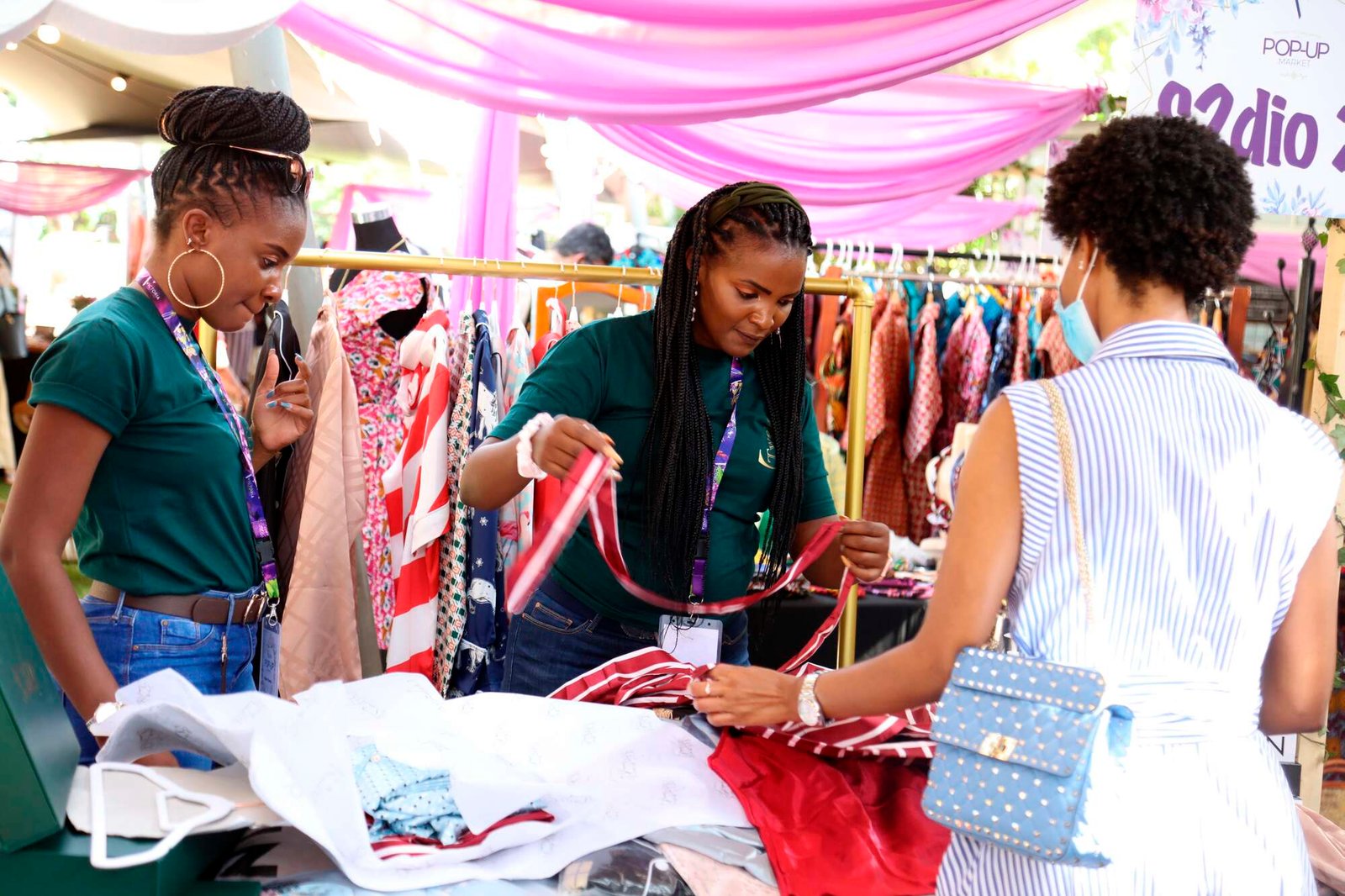[ad_1]
Columnists
Gender-lens investing key to achieve socio-economic equity
Thursday April 27 2023
A trade expo in Nairobi to empower women-owned enterprises in Nairobi on International Women’s Day in 2021. FILE PHOTO | NMG
Did you know that women create twice as much revenue per dollar invested as men in business; firms filling at least half of their leadership positions with women have higher sales growth, earnings and return on assets; women are more likely to start sustainably focused businesses; and that companies with women on boards are more likely to improve energy efficiency, lower company costs and invest in renewable power?
Africa has made great strides in the past few years regarding women empowerment. There is increased participation of women in both the political and socio-economic scene. There are more women business owners, Presidents, Prime Ministers, chief executives, chief financial officers and other senior roles that were hitherto male-associated. It’s encouraging that 18 percent of all businesses in Africa are women-owned.
In February this year, the European Investment Bank (EIB) signed its single largest funding support to women entrepreneurs in Africa that will unlock 540 million euros (about Sh81 billion) of new financing in Tanzania backed by partners CRDB, NMB and KCB-Tanzania. This is aimed at supporting female-led companies and the blue economy.
However, more still needs to be done to achieve gender equity globally and more so in Africa. Economic security is not a reality for all, and according to the Kenya National Bureau of Statistics, women are less likely to be employed in the formal sector. In fact, they are more likely to dominate the informal sector’s low-income, labour-intensive jobs, which lack value addition or growth opportunities.
International Women’s Day, celebrated last month, focus this year is on Innovation and Technology for Gender Equality. The technology sector is growing fastest in Africa based on the year-on-year expansion. It is amazing that Kenya, which has carved out a reputation as “Africa’s Silicon Savannah”, has the highest female representation among startup founders/co-founders at 25 percent compared to other leading economies like Nigeria, Ghana, or South Africa.
The digital economy is rapidly growing, with sectors such as information and communications technology (ICT), e-commerce, financial technology (fintech) and social impact businesses such as health and agri-tech transforming lives. Even so, inclusive participation remains a challenge, and the global gender digital divide is still a fact.
In addition, about 75 percent of women-owned/led businesses in Africa have no access to reliable growth finance capital. European Investment Bank is cognisant that limited access to credit is a huge factor as to why we have not tackled the structural barriers underpinning the global gender digital divide and digital transition that is both fair and inclusive.
Achieving gender equity in technology should not be limited to only women agitating for change. They need allies to support them, and that is where organisations that provide funding come in to address the credit gap that is essential in fostering entrepreneurship.
At the EIB, the strategy towards advancing gender equity in Africa and globally has always been to protect the right of girls and women, back projects with high impact on gender equality, and invest in women. The promotion of gender equity is embedded in the business model – covering lending and advisory services.
EIB has since 2019 mobilised over two billion euros (Sh299 billion) towards gender-responsive financing in Africa through its SheInvest initiative. The initiative aims to boost gender equality and female economic empowerment because research confirms that women entrepreneurs often find themselves as part of the “missing middle”, usually perceived as too small or too risky to receive traditional sources of commercial financing. EIB has pledged a further two billion euros (Sh299 billion) for future funding in Africa, Latin America and Asia.
The bank has taken various approaches to ensure credit is accessible and benefits women most, including providing private equity funding to startups, including those in the tech, providing funds to local financial partners such as retail banks or microfinance institutions to loan to women-owned/led enterprises and providing loan guarantees to de-risk women borrowers who may not have traditional forms of collateral to access credit.
All this is aimed at, among other things, closing the digital gender gap in big tech companies, promoting policy and regulatory reform, ensuring that digital transformation benefits all and supporting the provision of public and private services through gender-responsive digital channels, technologies and services that will enhance women and girls’ inclusion and participation in the society.
Thomas Östros is the Vice President of the European Investment Bank with oversight of the Eastern Africa region as well as gender-related financing.
[ad_2]
Source link



